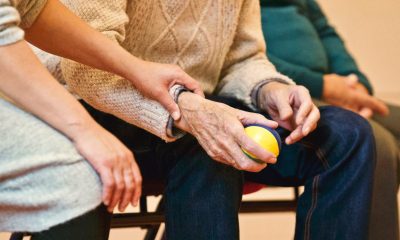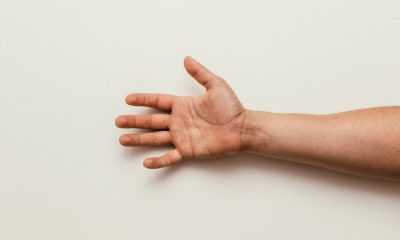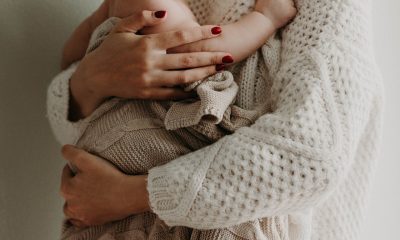Canada News
Quebec women who’ve worn niqabs discuss province’s controversial neutrality bill


FILE: Flag of Quebec (Photo By Government of Quebec(Vector graphics image by Krun) – SVG based on this file, Public Domain)
MONTREAL — Warda Naili says the first time she donned a niqab six years ago, it became a part of her.
The Quebec woman, a convert to Islam, said she decided to cover her face out of a desire to practice her faith more authentically and to protect her modesty.
And in an image driven society, she found it liberating that people would now have to connect with her based on who she was, not what she looked like.
“My interpretation — and it’s very personal — is that my niqab is my portable curtain,” Naili, 34, said in an interview near her home in Montreal.
“I can go everywhere and be reached, and reach people as I want.”
Fatima Ahmad, a 21-year-old Montreal university student, said she felt compelled to begin wearing the niqab just over a year ago, during the month of Ramadan.
“I realized it was something I wanted to do, and I loved it,” she said. “It’s part of my devotion towards God and it also deals with modesty.”
Naili and Ahmad are two of the Muslim women who are worried about what will happen to them in the wake of the Quebec government’s religious neutrality bill.
The legislation, which was adopted Wednesday, forbids anyone from receiving or giving a public service with their face covered.
That includes city services such as public transit.
While the law does not mention a particular religion, many say it unfairly targets Muslim women who wear religious face coverings.
Ahmad says the bill could technically stop her from attending university, although she’s hoping that won’t happen since most of the faculty members she’s spoken to have said they’ll support her.
She also takes buses and the subway to get around, both to school and social engagements.
In the future, she says she expects to have to stay home more often.
Naili, for her part, says she already stays home most of the time to avoid the discrimination she faces on the street.
The exception is hospitals, which she says she must visit on a regular basis for health problems.
She says she doesn’t see how the law can claim to be helping women when it will make her depend on her husband for rides and force her to change what she wears.
“I want to control who I give the permission to access my body,” she said. “I think every woman, and every person, should have this right.”
Both Naili and Ahmad say they made the choice to wear the niqab on their own, based on the way they interpret their religion.
But having made the choice, neither feel they can just remove the garment, other than when necessary for identification purposes.
“It’s something very personal to me, it’s part of who I am, my identity,” Ahmad said. “It’s not something I can just take off to receive a public service.”
Since its adoption on Wednesday, the bill has been the subject of heated debate.
The political opposition has said the law doesn’t go far enough, while members of the Islamic community said it violates the right of Muslim women right to express their religion as they see fit.
Some city leaders, including Montreal’s mayor, have said they’ll resist applying it to city services.
But not all women who’ve worn niqabs feel positively about them.
Ensaf Haidar, the wife of imprisoned blogger Raif Badawi, says she had to wear the niqab in Saudi Arabia at times because it was mandatory.
She feels niqabs are a way of erasing women from public view and says she doesn’t believe they have a place in Canada or Quebec.
“When the niqab is there, the woman is absent,” she said in a phone interview. “She’s like a ghost.”
Haidar lives in Sherbrooke, Que. with her three children as she fights for the release of her husband, who is serving a 10-year prison sentence for his criticism of Saudi clerics.
She says she doesn’t believe wearing the niqab can be a choice and hopes to see it gone from Canada one day.
“We came here to be free,” Haidar said. “We’re here because there are a lot of things we can’t do in our country.”
“I am here and I am free and I am me.”





















